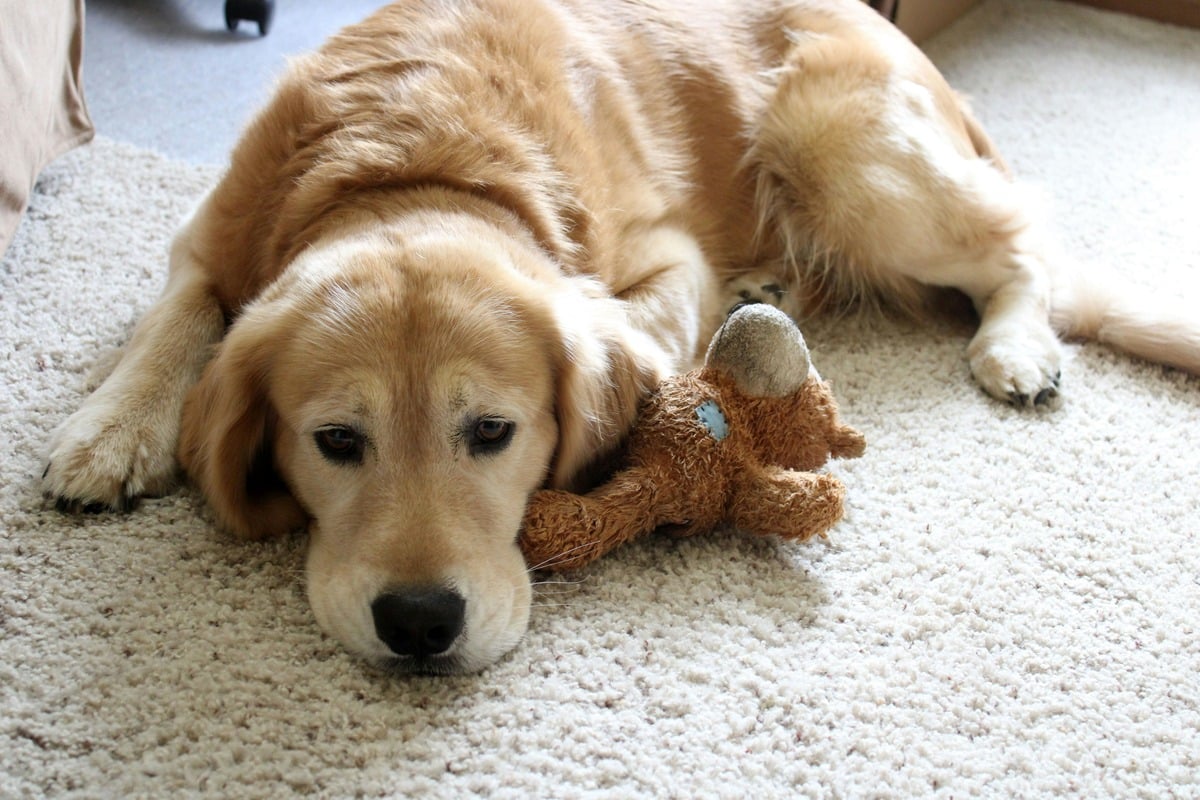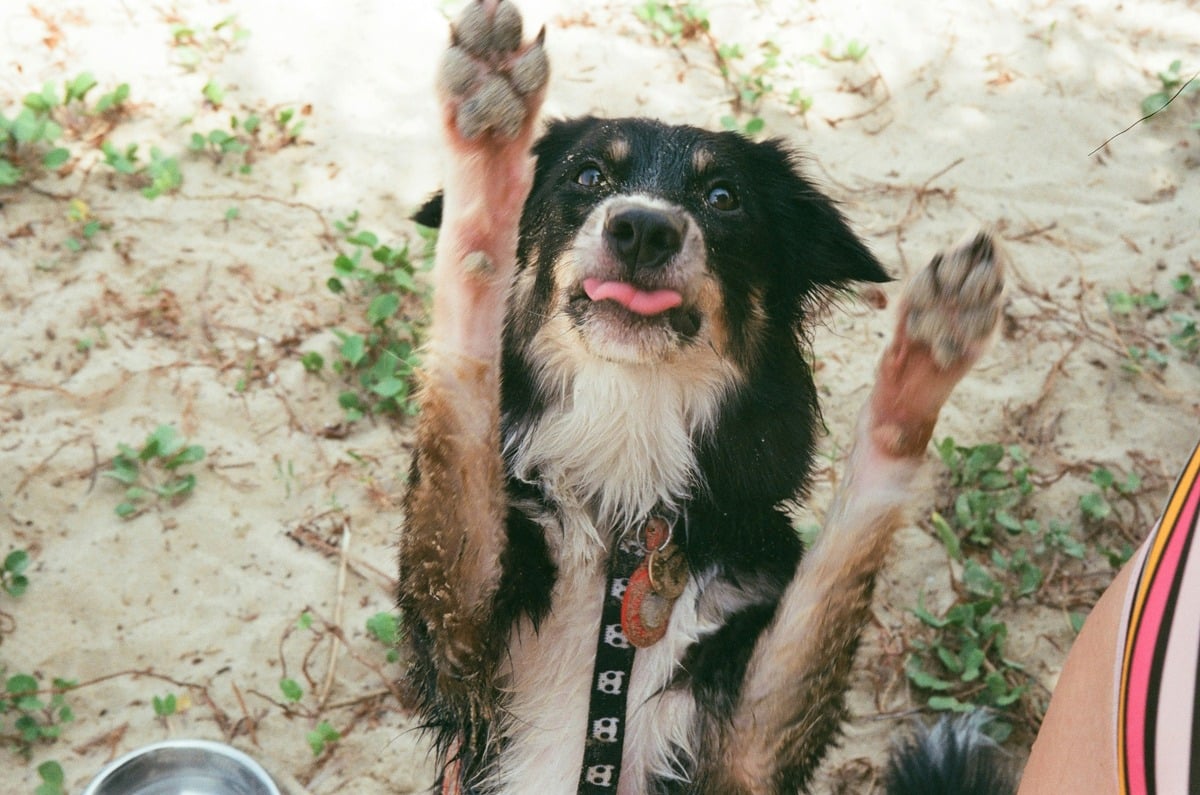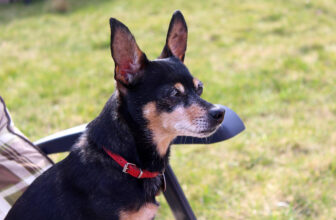
Check out our latest products
Shutterstock
Dogs are known for being energetic, playful, and loving, but even the most enthusiastic pup can get bored. When they’re feeling restless, dogs often find their ways to let you know. This could be through destructive behavior, excessive barking, or a sudden lack of interest in their usual activities. As pet parents, it’s essential to recognize the signs of boredom so that you can intervene early and provide the mental and physical stimulation your dog needs. This helps ensure they stay happy, healthy, and engaged in their surroundings.
Destructive Behavior
 Shutterstock
Shutterstock
One of the most obvious signs your dog might be bored is when they start chewing on furniture, shoes, or anything they can get their paws on. This is especially common in puppies, but adult dogs can show similar behavior when they have pent-up energy. If your dog suddenly starts gnawing on things that aren’t toys, it’s a clear signal that they’re looking for something to occupy their mind. Providing plenty of appropriate chew toys and engaging in more interactive play can help redirect this behavior.
Excessive Barking
 Shutterstock
Shutterstock
Dogs bark for many reasons, but if your dog is barking excessively without any apparent cause, it could be a sign of boredom. This is often accompanied by restlessness or a tendency to pace. Dogs are highly social creatures, and when they’re left alone or feel under-stimulated, they may resort to barking to fill the void. To combat this, try giving your dog more structured activities during the day, such as walks or puzzle games that engage their brain. If the barking continues, consider hiring a professional dog trainer for further guidance.
Digging
 Shutterstock
Shutterstock
Digging is another behavior that often stems from boredom, particularly for dogs with high energy or those who lack a stimulating environment. Whether it’s in the yard, on the carpet, or in their bedding, dogs will dig when they need something to do. This behavior is especially prevalent in breeds that were originally bred for hunting or burrowing. To prevent excessive digging, ensure your dog receives regular exercise and create a more stimulating environment for them by incorporating toys, training, and activities that channel their instincts.
Attention-Seeking Behavior
 Shutterstock
Shutterstock
When dogs feel bored, they often look for ways to get your attention. This can range from pawing at you constantly to jumping up on furniture or even nudging you with their noses. If you notice your dog behaving in a way that demands your focus, it might be because they’re looking for some mental or physical stimulation. You can address this by setting aside dedicated time each day for bonding activities, such as playing fetch, going on a walk, or teaching them a new trick. Consistency in attention can help curb attention-seeking behavior in the long run.
Sleeping More Than Usual
 Shutterstock
Shutterstock
While dogs love naps, too much sleep could be a sign that they’re not getting enough stimulation throughout the day. If your dog is sleeping excessively, it might be their way of passing the time because they have nothing to keep them engaged. Puppies, senior dogs, and certain breeds can sleep a lot naturally, but a sudden increase in napping could indicate boredom. Try increasing playtime and mental exercises, like puzzle toys or interactive games, to help your dog stay active and alert throughout the day.
Lack of Interest in Toys
 Shutterstock
Shutterstock
If your dog suddenly loses interest in their favorite toys, it’s a clear sign that they’re feeling bored. Dogs, especially active or intelligent breeds, can get bored with the same old toys if they’re not being stimulated in new ways. Rotate toys regularly, introduce new ones, or even hide treats inside toys to make playtime more exciting. Keeping things fresh and challenging will help rekindle your dog’s interest in play.
Overeating or Eating Odd Things
 Shutterstock
Shutterstock
A bored dog might start eating excessively or even try eating things that aren’t food. This could include grass, dirt, or even garbage, as they try to occupy themselves with anything they can find. Overeating due to boredom might also be a result of a dog trying to fill an emotional void. To combat this, ensure your dog’s diet is balanced and provide them with plenty of opportunities for both mental and physical stimulation. If these eating habits persist, consult a veterinarian to rule out any potential health issues.
Restlessness and Pacing
 Shutterstock
Shutterstock
When a dog is bored, it may exhibit restlessness by pacing around the house or repeatedly moving from one room to another. This is their way of showing they need something to do or are feeling anxious because they have no outlet for their energy. If you see your dog walking in circles, staring at the door, or just moving about aimlessly, it’s time for a change in their routine. Consider taking them for a walk, providing a new type of toy, or setting up a playdate with another dog to help them burn off that excess energy.
Whining or Whimpering
 Shutterstock
Shutterstock
Dogs that are bored may also whine or whimper in an attempt to express their dissatisfaction with their situation. This behavior can be a sign that they’re trying to communicate their need for more engagement or interaction. If your dog starts making these sounds more often than usual, it’s likely a signal that they’re looking for something to do. Give them attention by taking them for a walk, providing new toys, or teaching them new commands to redirect their energy.
Over-Grooming
 Shutterstock
Shutterstock
While grooming is a natural behavior for dogs, excessive licking, chewing, or grooming can be a sign of boredom or stress. If your dog is licking or chewing at their paws, legs, or body more than usual, it might be because they don’t have enough stimulation. This behavior can become compulsive over time if not addressed. Providing plenty of exercise, mental challenges, and distraction with toys or training can help reduce over-grooming and promote healthier habits.
Staring at You for Long Periods
 Shutterstock
Shutterstock
If your dog stares at you intently for extended periods without any apparent reason, it might be a sign they’re craving more interaction. Dogs are known to use eye contact as a way to communicate, and a bored dog might fixate on you to get your attention. Instead of ignoring their gaze, try spending some quality time playing, teaching a new trick, or even just cuddling. Meeting your dog’s needs for connection and activity can help alleviate this behavior.
Hiding or Retreating
 Shutterstock
Shutterstock
Sometimes, when dogs are bored or under-stimulated, they may retreat to their favorite hiding spots or become more withdrawn than usual. This behavior can indicate that your dog is feeling overwhelmed by the lack of excitement or engagement in their environment. It can also be a sign of anxiety or stress. If your dog is regularly hiding or avoiding interaction, ensure they are getting enough physical exercise and mental stimulation. Spend time with them in a low-pressure environment to encourage more positive behavior.
Overenthusiastic Greetings
 Shutterstock
Shutterstock
A bored dog may greet you with over-the-top excitement, jumping up, spinning in circles, or wagging their tail uncontrollably the moment you walk through the door. While enthusiasm is generally a sign of affection, excessive energy can be a sign of boredom or pent-up excitement. To manage this, ensure your dog is getting enough daily exercise and provide structured activities that allow them to expend that energy in a healthy way. Training can also help manage excessive greetings and encourage calmer behavior.
The Final Tail Wag
 Shutterstock
Shutterstock
Boredom in dogs isn’t something that should be ignored. It’s an indicator that your pup’s instincts and energy are not being appropriately channeled. By recognizing the signs early on and offering more engaging activities, you can help your dog live a more fulfilling and joyful life. Regular exercise, mental challenges, and dedicated playtime can go a long way in curbing boredom-related behaviors. So the next time your dog starts chewing on your favorite shoe, remember: they’re probably just trying to tell you it’s time for some fun.







![[5G & 2.4G] 2K Indoor Security Camera for Home Security, AI Voice Change for 2-Way Talk, Motion Detection, Night Vision, 24/7 SD Recording/Cloud Storage, WiFi Home Camera, Pet Cam with Phone App](https://i3.wp.com/m.media-amazon.com/images/I/61I2U+sTT3L._AC_SL1500_.jpg?w=300&resize=300,300&ssl=1)






